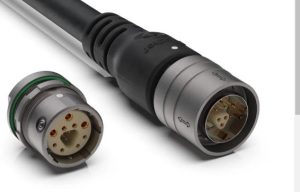What Makes a Microwave Isolator Essential?
Critical Function in Microwave Communication

A microwave isolator is an indispensable component in the field of microwave engineering, providing a vital function in maintaining the integrity and efficiency of microwave systems. These devices are designed to ensure that microwave signals flow in one direction, preventing unwanted reflections and signal feedback that can disrupt system operations.
Preventing Signal Reflection
Protecting Sensitive Equipment
Microwave isolators are crucial for protecting sensitive components such as amplifiers and oscillators from receiving reflected signals that can cause damage or operational failures. In high-power applications, such as satellite uplinks and radar transmitters, the backflow of signals can lead to significant issues, including reduced lifespan of components and decreased reliability of the system. Effective isolators typically provide isolation levels of 20 dB or more, which significantly reduces the risk of damage caused by reflected power.
Enhancing System Performance
By preventing reflections, microwave isolators help maintain the purity and directionality of the signal path. This not only protects the hardware but also ensures that the microwave system operates at peak efficiency, delivering clearer signals with reduced noise levels.
Improving Signal Stability
Stabilizing Frequency Sources
Microwave isolators play a critical role in stabilizing frequency sources by eliminating feedback loops that can lead to frequency fluctuations and phase noise. In systems where signal stability is paramount, such as in communications and navigation systems, isolators help sustain consistent performance, crucial for accurate data transmission and reception.
Customization and Versatility
Tailored to System Requirements
Microwave isolators can be customized to specific frequency ranges, power levels, and environmental conditions to fit various applications. Whether for terrestrial microwave links, aerospace applications, or mobile communication systems, isolators can be designed to meet the unique requirements of each scenario, ensuring optimal compatibility and performance.
Versatile Design Options
The design of microwave isolators often involves the use of ferrite materials and magnets to achieve the desired non-reciprocal behavior. These components can be configured in different ways to accommodate various waveguide sizes and connector types, enhancing the isolator's versatility and its ability to integrate seamlessly into existing systems.
Conclusion
In summary, the microwave isolator is a cornerstone technology in microwave communications, playing a crucial role in protecting equipment, enhancing signal stability, and improving overall system performance. Its ability to prevent backward signal flow and its adaptability to various technical specifications make it an essential component in the design and operation of advanced microwave systems. Understanding and implementing effective microwave isolators is key to advancing the capabilities and reliability of modern communication infrastructures.
